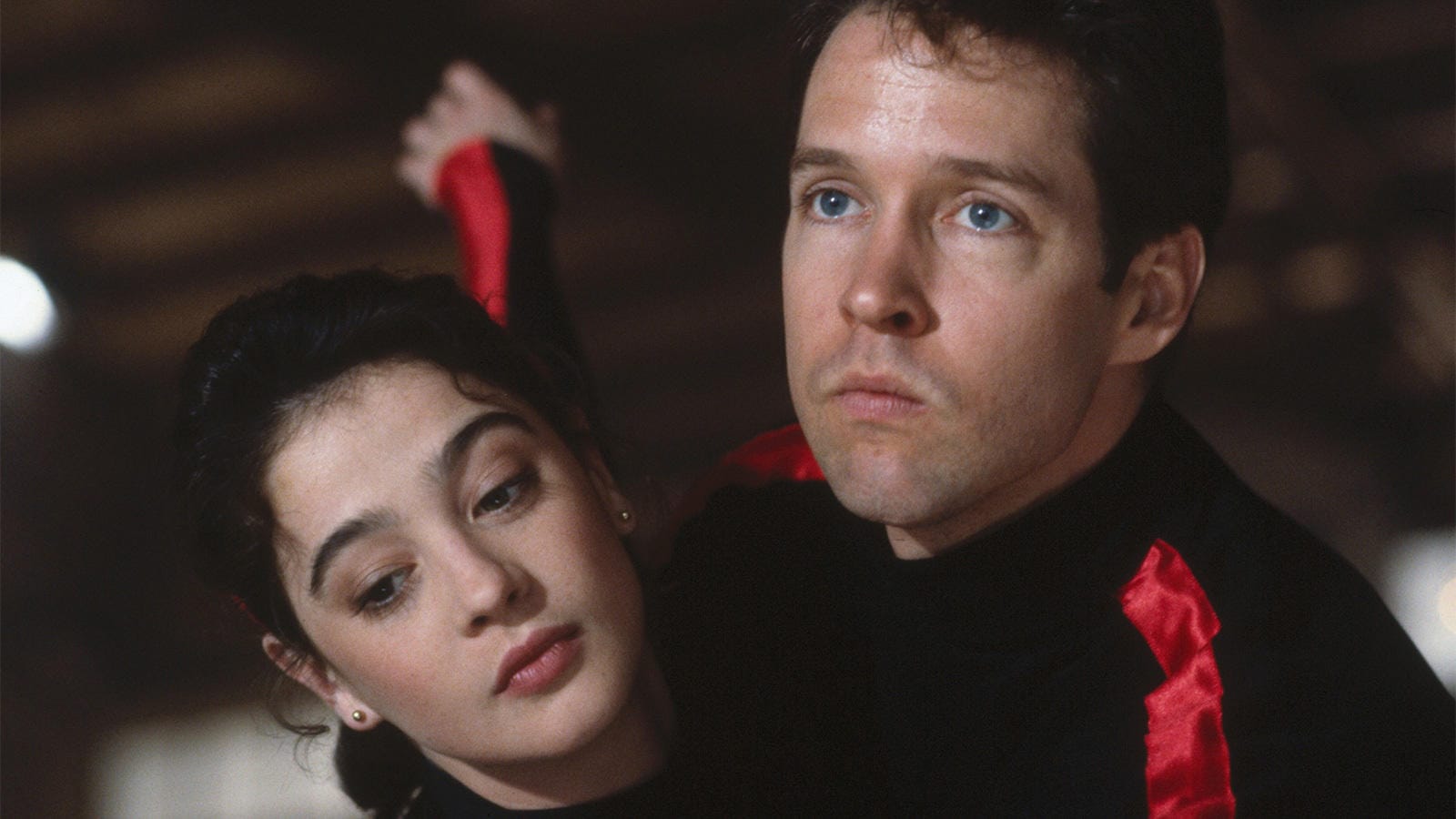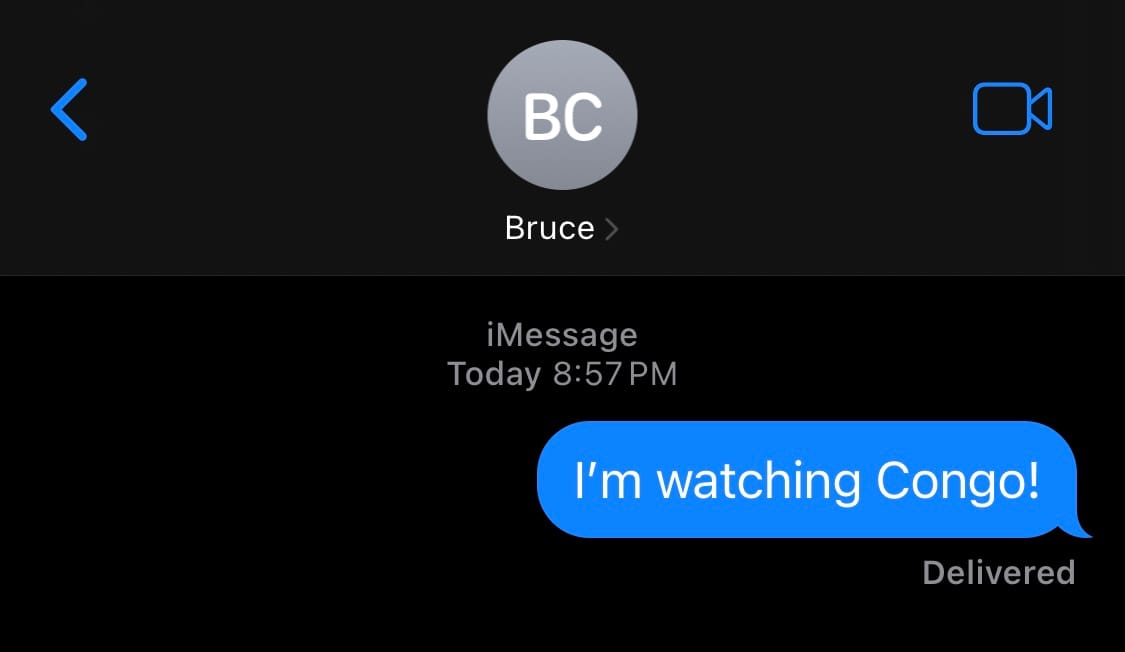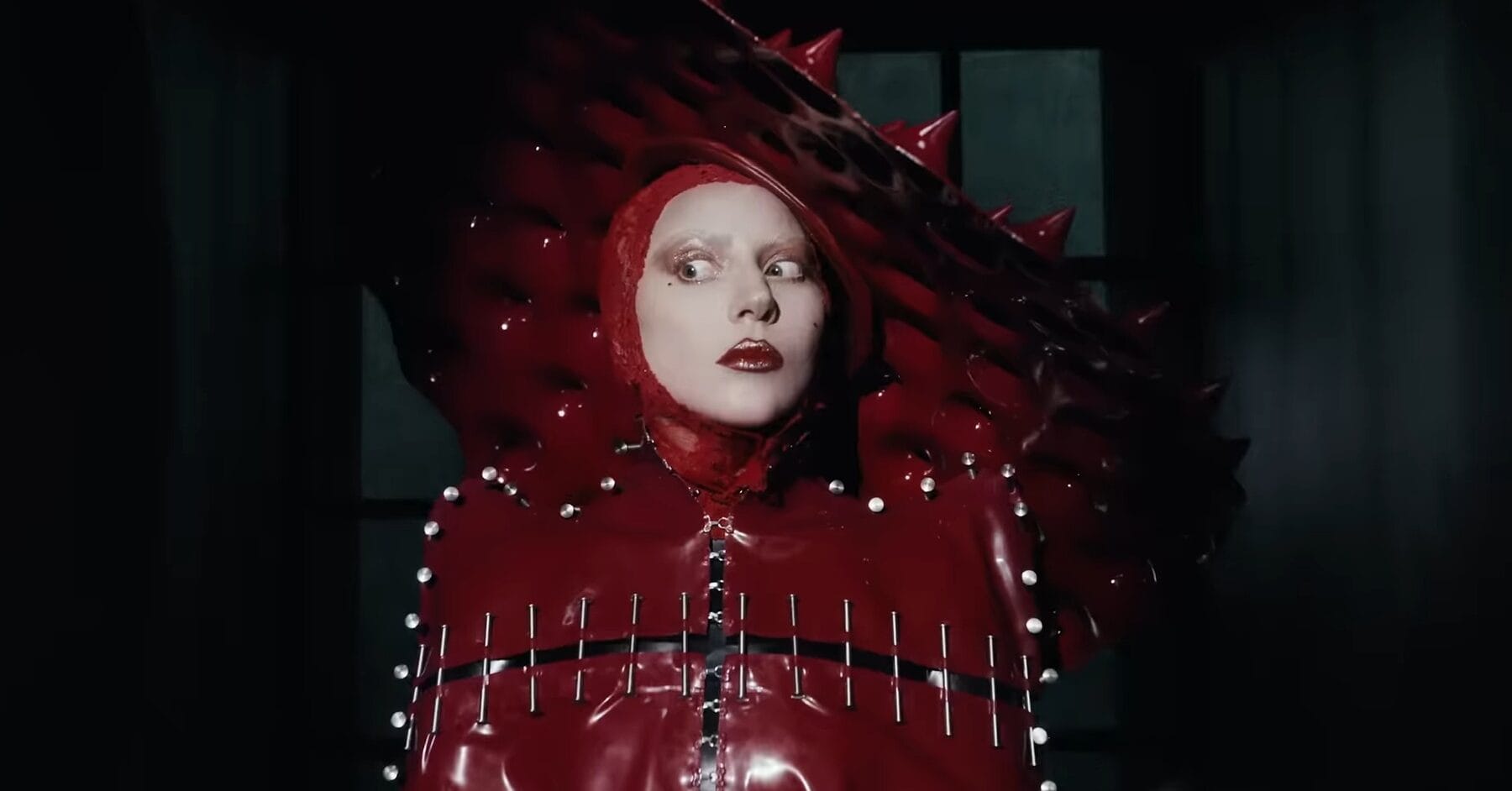#40: I may have harassed Bruce Campbell
Death By Consumption
2/4/25 - 2/10/25
After a Week of Rest and Relaxation, post-ablation, it's very exciting to be, like, ambulatory. Still, there are restrictions — I can't quite walk at New York City speed without triggering a heart flutter, which is proving extremely frustrating as the sidewalks get increasingly narrowed by snow piles, and I wind up stuck behind dawdlers. Soon enough, though, I'll be back to my full strength and I can plow through tourists again, shoulder-checking some old lady from Des Moines against the windows of a Chase Bank, as is every New Yorker's right.
It's also nice to be off the couch, where I spent way too much time on my phone, spiraling at the many daily unfolding horrors. I know we're all used to bad men experiencing absolutely zero consequences, but I'm extremely bummed at Eric Adams getting away with his strange Turkish crimes. We couldn't even throw him in jail, even for a little while, as a treat? We deserved that much, at least!
This week, I saw a few of the major 2024 films I had yet to see, watched some very stupid 90s movies, textually harassed a celebrity, read two very popular books set in Ireland for some reason, and got raptured by new music from Lady Gaga and Sharon Van Etten.
The Brutalist (2024) — at Nitehawk Prospect Park
Half of a great film. The first half is beautiful and expansive, a movie that really feels like a movie, so I was absolutely soaring by the time the intermission hit (and truly, every single movie should have an intermission; it’s so fun! Plus our kidneys will appreciate the enforced pee breaks). Then I came back for part 2, and was immediately confronted with Felicity Jones and her Gal Gadot-level acting, playing a Hungarian with a Bjork accent for some reason. As a gay man, supporting practically any actress at all, no matter what they do, is in my very marrow, but watching Felicity Jones' talents compared to Adrien Brody's made me forcibly disassociate multiple times. Why was she doing all of that!
As part 2 unfolded the plot spiraled into melodrama and insanity, including the most unnecessary rape scene since Game of Thrones. The drop-off in quality was steep and bewildering, and I still don’t know why any of the choices that were made in part 2 were made. It felt as if he had written the script in one sitting, and drank throughout — he was sober and genius on page 1, and by the end he was a cross-eyed mess. Still, the soundtrack is spectacular, and a lot of the imagery is gorgeous, but ultimately the film left me feeling like it was kind of Tár for idiots.
The Cutting Edge (1992) — on Amazon Prime
I guarantee I’m the only person in the world to ever watch The Brutalist and 1992’s figure skating romcom The Cutting Edge in the same day. This is a stupid, hilarious movie to watch with friends, in which we mostly spent the entire runtime trying to decide if we found the main actor cute or not. (Verdict: kind of? But only when he's not mouth-breathing.) This movie seems to think Minnesotans have Pennsylvania accents, which is obviously wrong but does carry a kind of cultural truth to it.

Hard Truths (2024) — at Lincoln Center
It’s safe to say I’m a Mike Leigh stan now. All it took was two movies — last week’s Secrets & Lies, and now Hard Truths, his newest film, which stars Marianne Jean-Baptiste again, in not only the role of her career, but the performance of the year. I’ve been following the Emilia Perez implosion with uncomfortable mirth (I am living for the mess, but Karla is really our first major trans nominee??? Might as well have nominated Caitlyn Jenner), and now I’m outraged that Marianne wasn’t nominated. What she does in this film is stunning, to take this woman who is 99% excruciating to be around, and to make her someone that you ultimately care for… really, how did she do this!
The movie is a merciful 90 minutes, packed to the gills with all the rich texture and real life shit I’ve already come to expect from Mike Leigh. It’s just so nice to see a film that trusts you to think for yourself. The scenes with the younger daughters, having problems at work and then lying to each other about it, which doesn’t fit into the plot at all or ever get revisited — a lesser film would have never even thought to include any of that, and I’m so glad he did. Hard Truths was very uncomfortable to sit through at times, but it’s one of my favorite movies of 2024.
Dahomey (2024) — on Mubi
Another mercifully short film, an experimental documentary about 26 artifacts that are repatriated from France to Benin. It’s definitely slow — for the first 30 minutes, nearly half the entire runtime, you simply watch artifacts get packed up in France, flown to Benin, and then unpacked. Interspersed are vignettes in which one of the artifacts “speaks” in poetic monologues, musing on where it is, where it’s going, whether it’s connected to its history anymore. It’s a long, slow beginning, mostly carried by the lush imagery and absolutely incredible soundtrack.
And then the second half flips, and becomes ROWDY, focused on a public forum in Benin about the artifacts' return. Various community members step up to the mic and vigorously debate: is this just Macron and France trying to regain good PR in their former colonies? Are these artifacts active, religious totems or merely art to be put behind glass? Does Benin even have the resources to safeguard these artifacts, or were they better off in France? And what’s going to happen to the thousands of other artifacts still in France? This is called a documentary, but really it's something different and new, and I'm not sure it's completely successful. While it presents a handful of interesting and complex ideas, it never really goes deeper than surface level on any of them. But it's absolutely stunning, and the vibes are immaculate.
Congo (1995) — on Apple TV
Sometimes, in the depths of winter, you just have to smoke a joint with a friend and watch something stupid. I don’t know how I had never seen Congo, especially since I was literally a member of Koko the Gorilla’s official fan club as a kid (they sent me a different poster of Koko with her pet cat every month). This movie is absurdly stupid — the gorilla, who is obviously a female actress in a monkey suit, drinks martinis?! The opening scenes, which feature a very young Bruce Campbell, prompted me to reveal that, ever since I interviewed Bruce for my college paper in 2008, I’ve held onto his personal cell number. Thanks to the power of weed and peer pressure, I finally used the number, and texted him:

He did not respond, but I wonder what went through his head when he got this text. Did he think the spam texters had gotten frighteningly good? That I was some Congo extra he drank with nearly 40 years ago, randomly reaching out? Or did he just think that Laura Linney had changed her number and not told him? Anyway, folks, I am ashamed of myself, and I offer this to you as a lesson — do not harass the celebrities in your contacts. They deserve peace, too!
Say Nothing: A True Story of Murder and Memory in Northern Ireland, by Patrick Radden Keefe (2018) — paperback
“In Belfast, history is alive and dangerous.”
This account of the Troubles in Northern Ireland was briefly all-consuming during the week. Told with a beautiful, quickly moving style, Say Nothing gives a shockingly first-hand account of the IRA’s activities throughout much of the latter half of the 20th century, including gory murders, bombings, hunger strikes, and disappearances. The story is politically complex, morally thorny, historically secretive, and deeply personal, and the fact that Radden Keefe pulls it off in a fairly balanced and straightforward way that even total Irish outsiders like me can understand is a feat of storytelling.
And now, of course, I am more or less obsessed with Dolours and Marian Price, these two teenaged female terrorists, who are impossibly charming even while car-bombing London, and who complicate the extremely simplistic (and, of course, often racist) American ideas of what “terrorism” is or looks like. The book only makes one or two explicit comparisons to Palestine, but after reading it I understood on a deep level why the Irish in general feel such an affinity with the Palestinian people.
The book also, in a wonderfully unstated way, paints a stark picture of what happens when modern societies get stuck in a tit-for-tat doom loop of grievances and score-settling:
“When it came to the Troubles, a phenomenon known as "whataboutery" took hold. Utter the name Jean McConville and someone would say, What about Bloody Sunday? To which you could say, What about Bloody Friday? To which they could say, What about Pat Finucane? What about the La Mon bombing? What about the Ballymurphy massacre? What about Enniskillen? What about McGurk's bar? What about. What about. What about.”
Intermezzo, by Sally Rooney (2024) — hardcover
I couldn’t mentally leave Ireland quite yet, so I rolled right into Intermezzo. I’m not exactly a Roonatic (though I have read everything she’s written, so maybe I am) but I do get excited when there’s a rare publishing sensation of any sort, so a new Sally Rooney will always grab my interest. None of her books have really stuck with me, though — they feel a bit floaty and remote, with characters that blur together — so I expected more of the same. I was pleased to find, then, that Intermezzo felt like the biggest departure she’s taken in a novel. The two protagonists are men, for one (finally, men get some attention!), brothers with a strained relationship that grows even more strained after their father’s death, but the biggest difference with the rest of her work is stylistic. And that, unfortunately, was my biggest problem with the book.
The chapters following the younger brother, Ivan, a 22-year-old slightly awkward chess prodigy, and Margaret, the 36-year-old woman he meets and starts dating, are more straightforward in style, and therefore easier to fall into. But the chapters following the older brother, Peter, a 32-year-old fucked-up lawyer dating two women at the same time, are told in terse, blunt prose, lengthy paragraphs consisting of sentences that are often 2 or maybe 3 words long, that bounce wildly between action, dialogue, and internal thoughts without warning. It’s a bit James Joyce, a bit Faulkner, a bit Virginia Woolf, a bit exhausting. As a result, I struggled to connect to Peter’s sections, and, to be honest, it felt a bit like Sally Rooney did, too. Even the two women Peter is involved with get way less interiority and complexity than Margaret, the woman Ivan is dating.
In fact, Peter’s problems in life are somewhat vague, for all his internal agony over them — one of the women he’s in love with, Sylvia, has chronic pain, and can’t really have sex. So he starts also dating and sleeping with a younger woman who seems to be an OnlyFans model, who he plies with money and gifts. But his problem isn’t what you think; the women know about each other, and are more or less okay with the arrangement! In fact, they basically badger him into having an open relationship, but he struggles with it, out of a patriarchal feeling that they might, at some point, feel bad, I guess? By the time Peter’s doing his best It’s a Wonderful Life impression, stumbling around drunk and thinking vaguely of suicide, I felt completely disconnected from this guy. Oh no, I’m rich and successful and my beautiful girlfriends are both in love with me, I should kill myself! Girl, grow up.
Another issue I had was that the main source of conflict between Ivan and Margaret is their difference in age, which, like… just get over it? I guess I just don’t see a 14-year age gap between consenting adults as enough drama to cause the characters to, as they do in one scene, sink to the floor and sob over. Is this what straight people are like? Or is this a UK thing? (Everyone is wound so tightly in the novel, in a way that feels more English than Irish, actually, if I can stereotype for a moment.) But when you forget about the particulars of whether an age gap would really destroy these two people in this way, the love story between these two is very well done. I really loved the Margaret and Ivan chapters, though partly that was because they gave me a break from the intensely stylized Peter chapters.
Because really, Rooney is fantastic at conjuring very real characters on the page, and she excels at portraying the stops-and-starts in conversations, sex, and relationships. The way the characters relate to each other just feels very true. And every page or so she wallops you with a sentence that is just so lovely, that you would maybe even consider getting a tattoo of it if you were, say, 19.
So it’s an uneven book, but one that I found surprisingly moving by the end. Oddly for Sally Rooney, the relationships between men and women aren’t the strongest part, though the relationship between Ivan and Margaret is very well done — instead, the richest and most impactful relationship is the one between the two brothers. So it’s nice seeing Rooney stretch her wings and bring her incredible observational talents to a new type of relationship than the typical stifled-young-man meets stifled-but-bold-young-woman that has been her bread and butter for so long. But Rooney’s wing-stretching with regards to style, rather than feeling freeing, made the story feel even more cramped for me. I yearned for the Peter sections to break out of his style as the character grew, for him to maybe, at the very least, throw us a verb or two? By the end I was exhausted and happy to be finished, but a couple days later I’m already looking at my calendar like, okay, when do we get the next Rooney?
"Abracadabra" by Lady Gaga — in a Mastercard commercial

Gaga is Satanic again, thank god. This song immediately made me 15 years younger, as if I were once again blasting “Bad Romance” from tinny MacBook speakers. And I just want to get on the record now and say that, when “Disease” finally gets the love it deserves from the gays this summer: I liked it the whole time.
"Sharon Van Etten & The Attachment Theory" by Sharon Van Etten — on Spotify
There’s a type of music that really works for me as walking music — big, brash, lush, heartbreaking. The kind of music that, when blasted in my headphones at a level that leaves me extremely vulnerable to being run down by a car without hearing a single warning, puts me inside my own indie film. I walk and look at the barren, cold streets, all the faces of the people passing me living their own private dramas, and I feel a part of everything but apart from it all. Outside I’m any schmuck on the sidewalk, inside I’m Zach Braff in Garden State.
Sharon Van Etten’s new album, released last week, her first non-solo album with her band The Attachment Theory, is one of these top-tier walking albums. I was in the palm of her hand from the opening — dare I say Lynchian — chords, and as the album unfolded I was overcome with that indelible sense of yearning. Yearning for what, you ask? I don’t know, just yearning! Adding a full band to her rich voice opened her sound up to so much interesting variety, and this album overflows with — for lack of a better word — mood. It’s the perfect soundtrack to walking around our crumbling but still beautiful world.